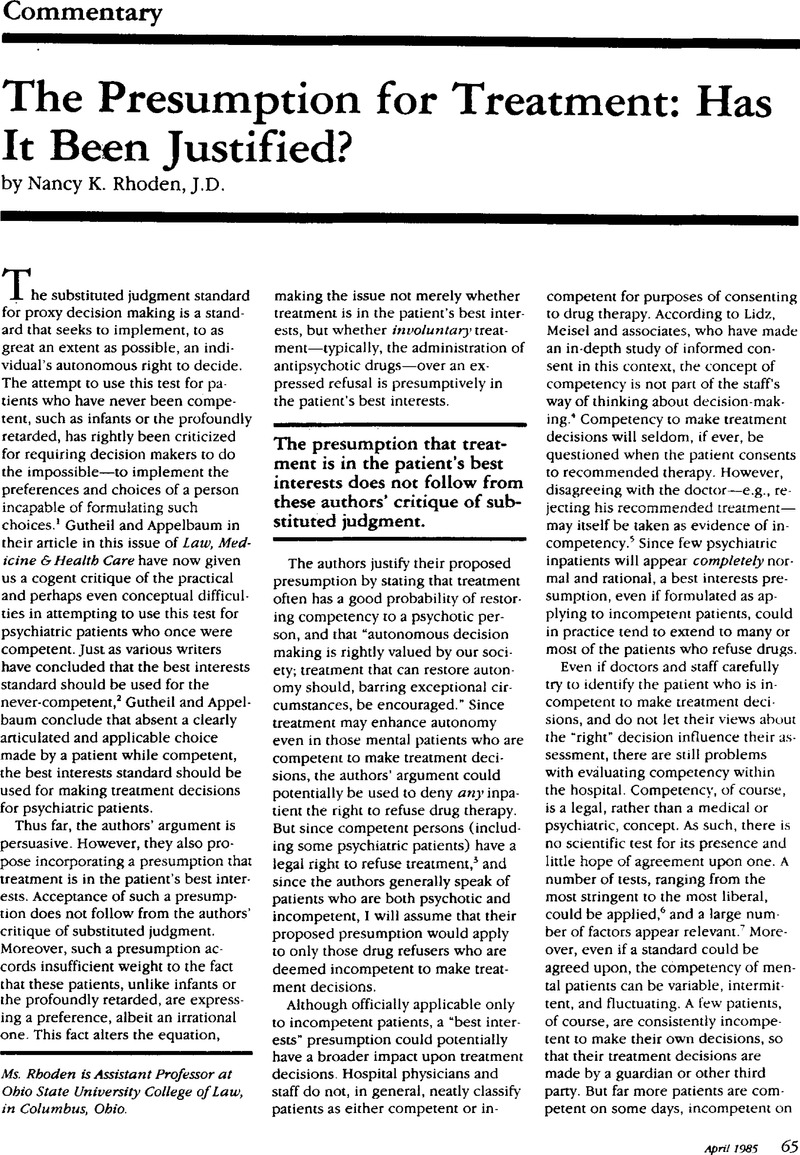Crossref Citations
This article has been cited by the following publications. This list is generated based on data provided by Crossref.
Clayton, Ellen Wright
1987.
From Rogers to Rivers: The Rights of the Mentally Ill to Refuse Medication.
American Journal of Law & Medicine,
Vol. 13,
Issue. 1,
p.
7.



